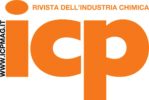Influence of Packing Fraction on Powder Permeability: A New Characterization Method
Time: 9:30 am - 9:50 am
Date: 26 March
Theatre: Arena 4
Synopsis
Many industrial applications, such as pharmaceutical, food, additive manufacturing processes, use powders. It is, therefore, very important to precisely characterize these materials to properly control and optimize the processes. Many are the factors affecting the macroscopic behavior of the powders: particle properties (e.g. size and shape distribution), cohesive forces, friction and interlocking between the particles, stress state of the powder in the process, interaction with the surrounding fluid. The influence of air is very important in many phenomena: in die filling of tablet manufacturing, for example, air needs to be rapidly removed in order to bring the particles closer. In fact, the denser the powder in the die, the better the quality of the final tablet (Vreeman & Sun, 2022). The capacity of a material to allow a fluid (e.g. air) to pass through its bulk is called permeability. This property depends on powder porosity since the denser the powder, the lower the capacity of air to percolate through the material. Therefore, permeability strongly depends on the packing conditions. At Granutools a new approach has been developed to study the effect of packing conditions on permeability of the powders. It consists in compacting the powder bed by means of taps and in evaluating the permeability of the powder bed at different packing fractions, i.e. at different number of taps. By doing so it is possible to correlate the typical packing conditions, occurring in different industrial processes, to the resulting powder permeability. In this study, 7 different kinds of lactose powders used as carrier for pharmaceutical tablets have been tested. The results show that there is a direct effect of packing fraction of the powders on permeability.
Speaker
 Giuseppe Rosario Del Sorbo Granutools
Giuseppe Rosario Del Sorbo Granutools
« Back



















